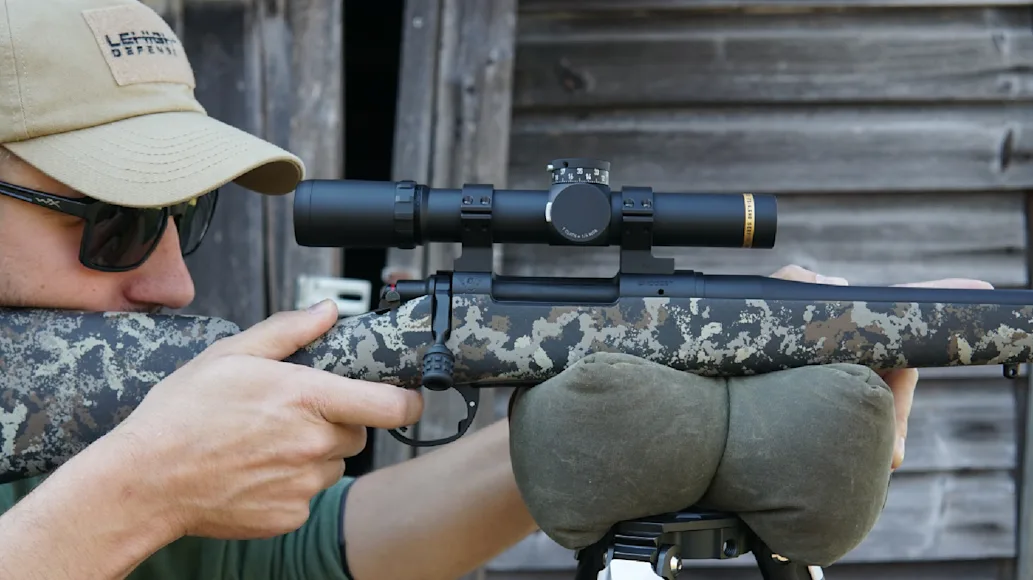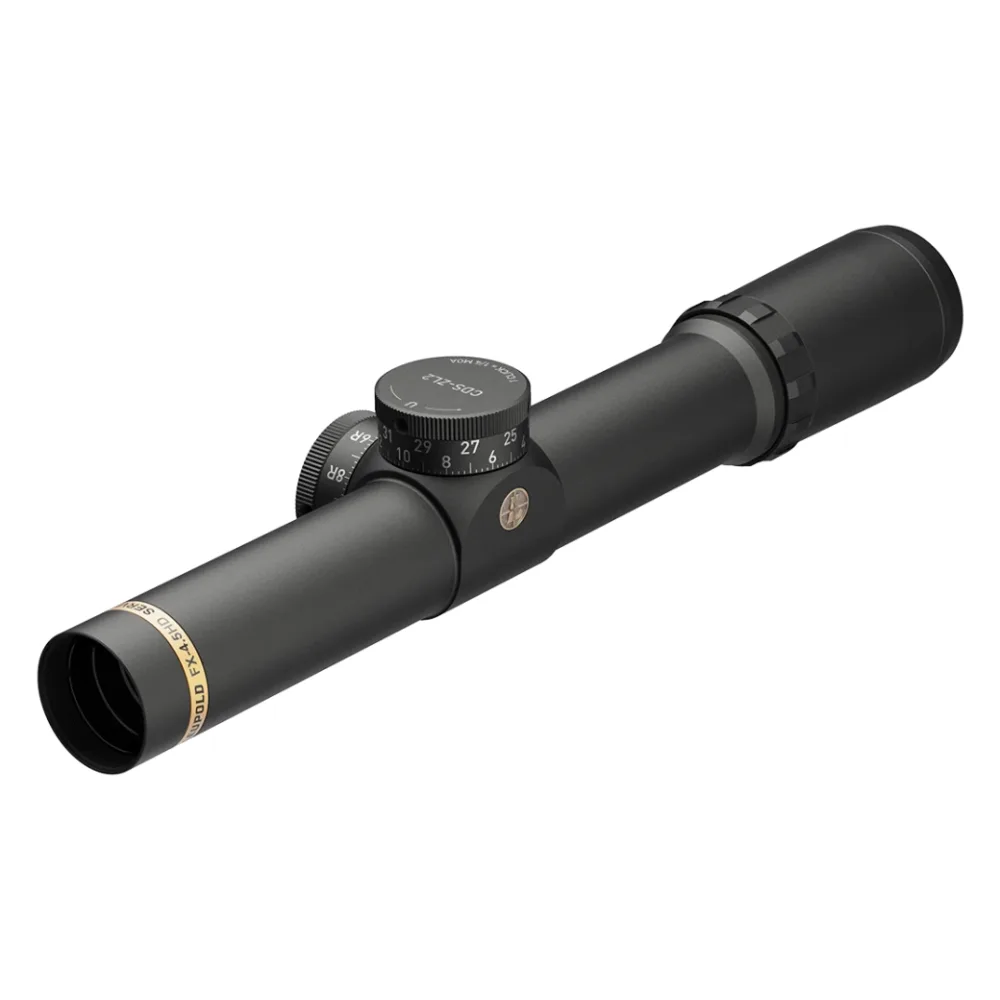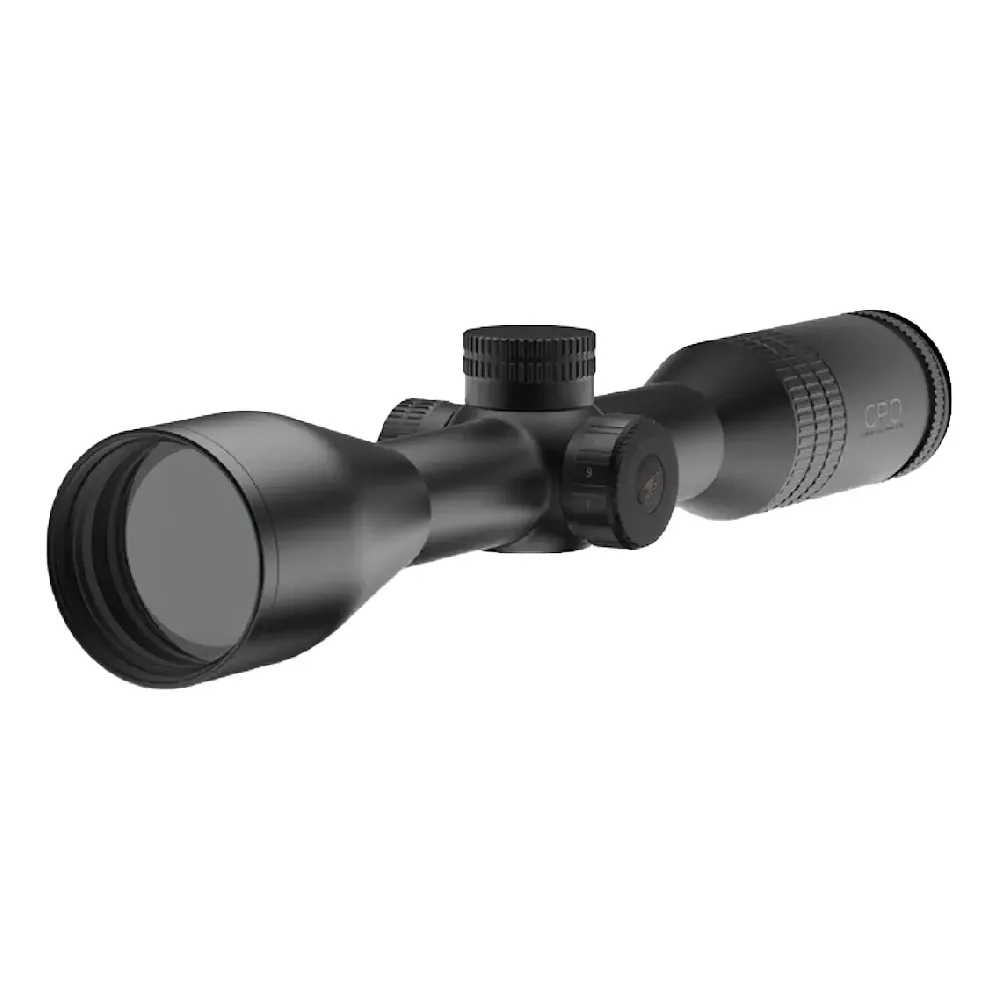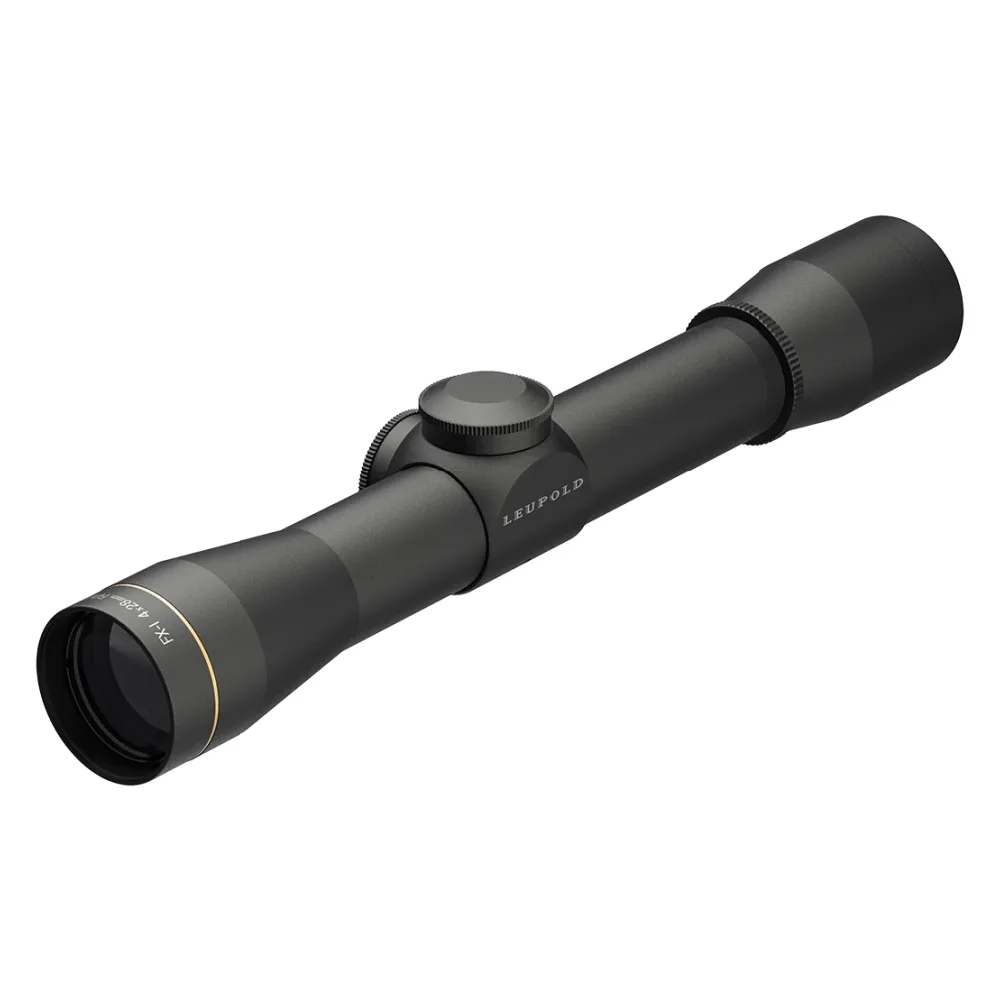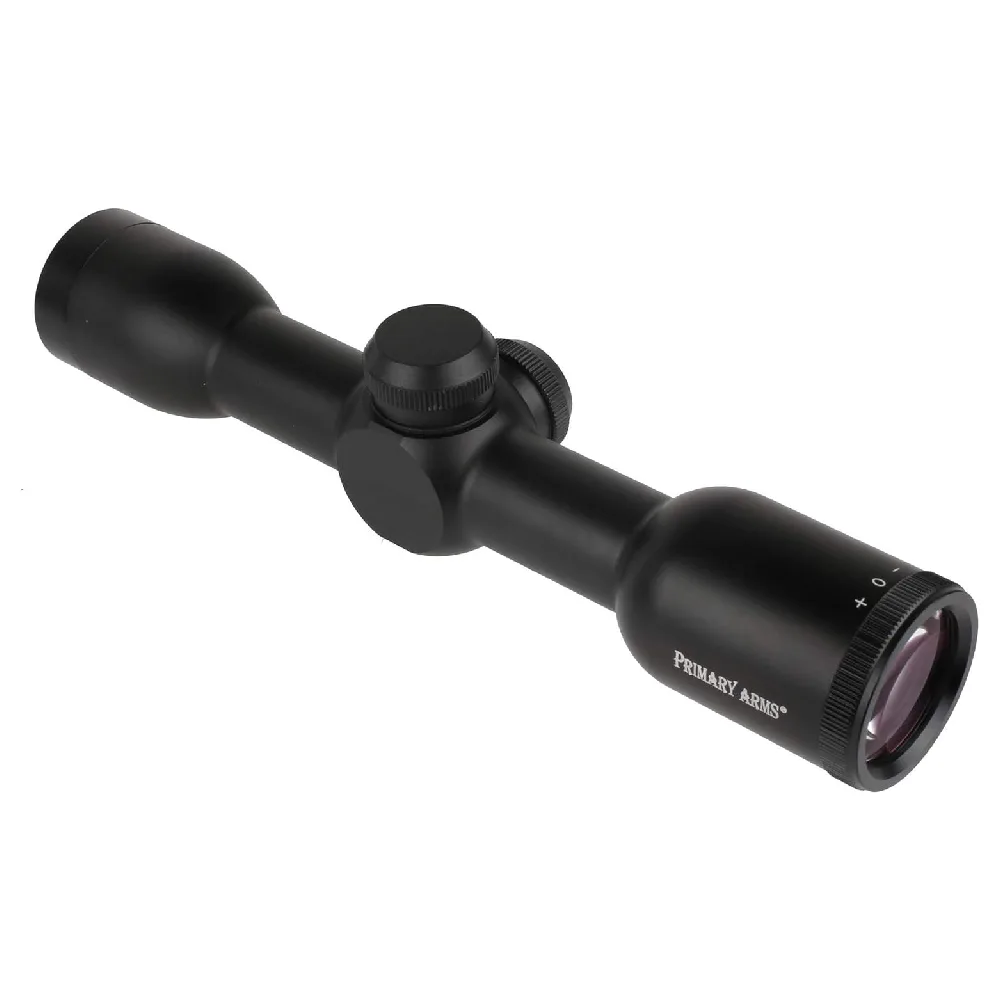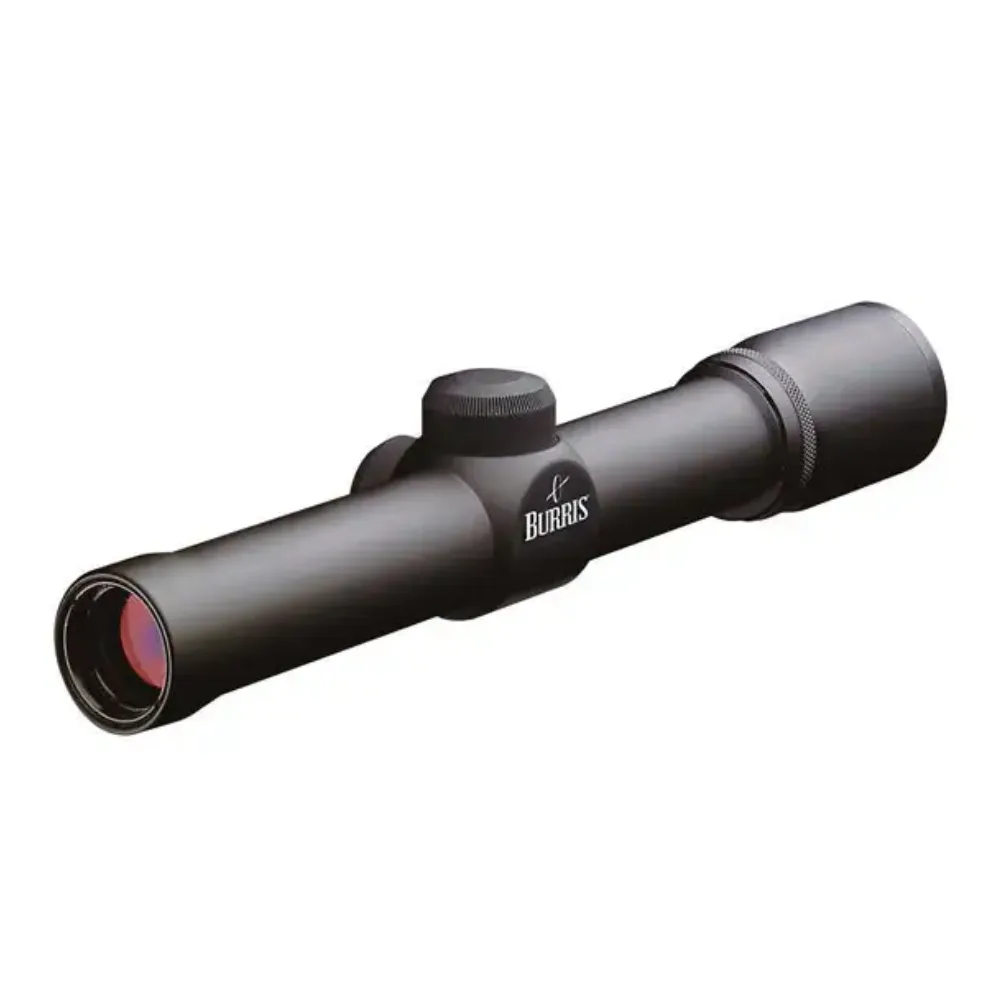We may earn revenue from the products available on this page and participate in affiliate programs. Learn more
I absolutely love fixed-power scopes. The only problem is the rest of the shooting world doesn’t, and there aren’t a lot of them left on the market. But there are a few reasons why you might want to pick one for your next rifle build.
Fixed powers only offer one level of magnification. This can sound limiting, but when you start shooting with one, you’ll realize that you don’t need as much glass as you think. Usually, they’re set at levels that are ideal for shooting game at practical distances. Whether you’re hunting in the woods or open country, you’ll probably find a fixed-power rifle scope can do a lot more than you think.
Fixed powers also let more light in because they don’t have as much glass in the way for magnification. If you’re hunting in the woods at the edge of twilight, you’d be well served with one of these optics. Finally, fixed powers are no-nonsense. You don’t have to worry about accidentally cranking your optic up too much because you can’t change the magnification. There’s less to go wrong and less to get in the way of the shot of a lifetime.
If you’re ready to give a fixed-power scope a try, there are only a handful to choose from. The good news is, just about every one of them is solid for what it was designed to do. Below, you’ll find our picks for the best fixed-powers out there today, based on thorough testing.
Best Overall: Leupold FX-4.5HD Service Rifle 1-4.5x24mm
Best Budget: Hawke Vantage 4x32mm
Best for Hunting: GPO Spectra Fixed Power 7.5x50i
Best for Small Game: Leupold FX-I Rimfire 4x28
Best for Plinking: Primary Arms Classic Series 6x32mm
Best Scout Scope: Burris Scout 2.75x20mm
Best Overall: Leupold FX-4.5HD Service Rifle 1-4.5x24mm
Specs
Magnification: 4.5X
Reticle Type: Second Focal Plane
Objective Lens Diameter: 24mm
Tube Diameter: 30mm
Adjustments: MOA
Weight: 13.25 ounces
Pros
Adjustable turrets
High-quality glass
Cons
Limited to one reticle design

The FX-4.5HD is different than all of the fixed-power scopes in this test. Being from Leupold, you can trust that it’s a quality optic with repeatable adjustments, a rock-solid build quality, and top-tier glass. What really sets it apart, though, are the adjustable locking turrets. You’d be hard-pressed to find a scope you can adjust on the fly for holdovers in a compact package like this. And if you’re confident in your shooting ability, you can use it to make hits out to some pretty impressive distances.
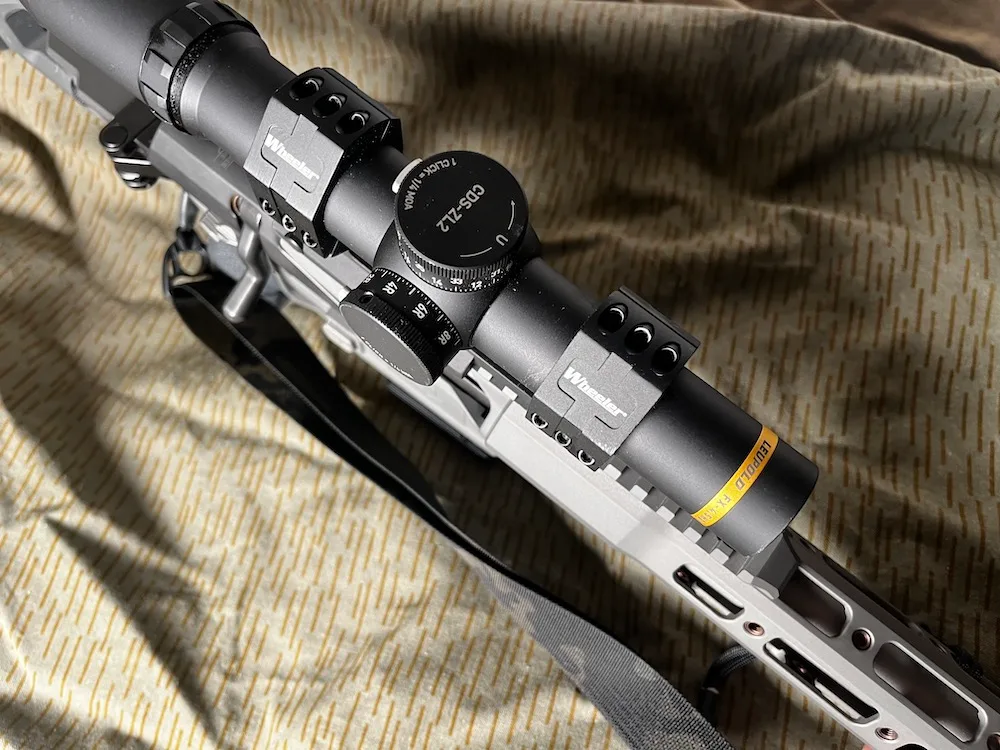
The FX-4.5HD was built for service rifle competitions, but I feel that it’s right at home in the woods, too. It has an eye-catching large circular reticle with a fine dot in the middle for precision work. It’s also CDS dial compatible should you want to order a custom turret. The 4.5X magnification is a good middle ground for practical hunting distances. This deer season, I put the scope on a Q Mini Fix, and I didn’t feel under-guarded. On the range, this scope performed beautifully at both bench shooting and in different field shooting positions.
Best Budget: Hawke Vantage 4x32mm
Specs
Magnification: 4X
Reticle Type: Second Focal Plane
Objective Lens Diameter: 32mm
Tube Diameter: 1 inch
Adjustments: MOA
Weight: 11.1 ounces
Pros
Price
Extremely lightweight
Cons
Mil-dot version has MOA adjustments

If you’re on the fence about fixed-power scopes, the Hawke Vantage is the perfect gateway drug. At around only $100, this straightforward hunting scope hits way above its weight. On the range, the Vantage was right there with the other scopes of the test. The glass is clear and crisp, and the reticle works just fine for close-range shots under 200 yards. If you’re feeling ambitious, Hawk also offers a version of the Vantage fixed power with a mil-dot reticle that would be nice for establishing hold overs and ranging targets on an air rifle, rimfire, or centerfire rifle.

This scope would be right at home on a 30-30, 45-70, or handgun-caliber lever-action in the deer woods. It’s the exact right magnification for hunting timber, where shots rarely exceed 75 yards. Best of all, it’s feather-light at only 11.1 ounces. Budget or not, if you’re a big woods hunter who likes to cover serious ground, this would be a great scope for you.
Best for Hunting: GPO Spectra Fixed Power 7.5x50i
Specs
Magnification: 7.5X
Reticle Type: Second Focal Plane
Objective Lens Diameter: 50mm
Tube Diameter: 30mm
Adjustments: MOA
Weight: 21.7 ounces
Pros
Illuminated reticle
Great light transmission
Cons
Weight
Expensive
I didn’t get to personally test the GPO Spectra, but I’ve heard good things about it from friends, and because fixed-power scope options are so limited out there, I thought I’d include it here. It’s on the pricey side, so you’ll really want to know you like hunting with a fixed power before buying one.
This optic looks to be built to take full advantage of a fixed-power’s ability to transmit light. It has a large 50mm objective lens, 30mm tube, and an illuminated reticle. At 7.5X, it offers a good middle ground for mid-range to farther shots, but it might be a bit much at distances under 50 yards. Still, those kinds of close shots are rare while hunting, and you’ll probably appreciate a bit more glass when reaching out over a cornfield or shooting down a powerline cut.
Best for Small Game: Leupold FX-I Rimfire 4x28
Specs
Magnification: 4X
Reticle Type: Second Focal Plane
Objective Lens Diameter: 28mm
Tube Diameter: 1 inch
Adjustments: MOA
Weight: 7.5 ounces
Pros
Lightweight
Excellent quality
Cons
Pricier than other rimfire scopes, but the quality far outweighs the cost
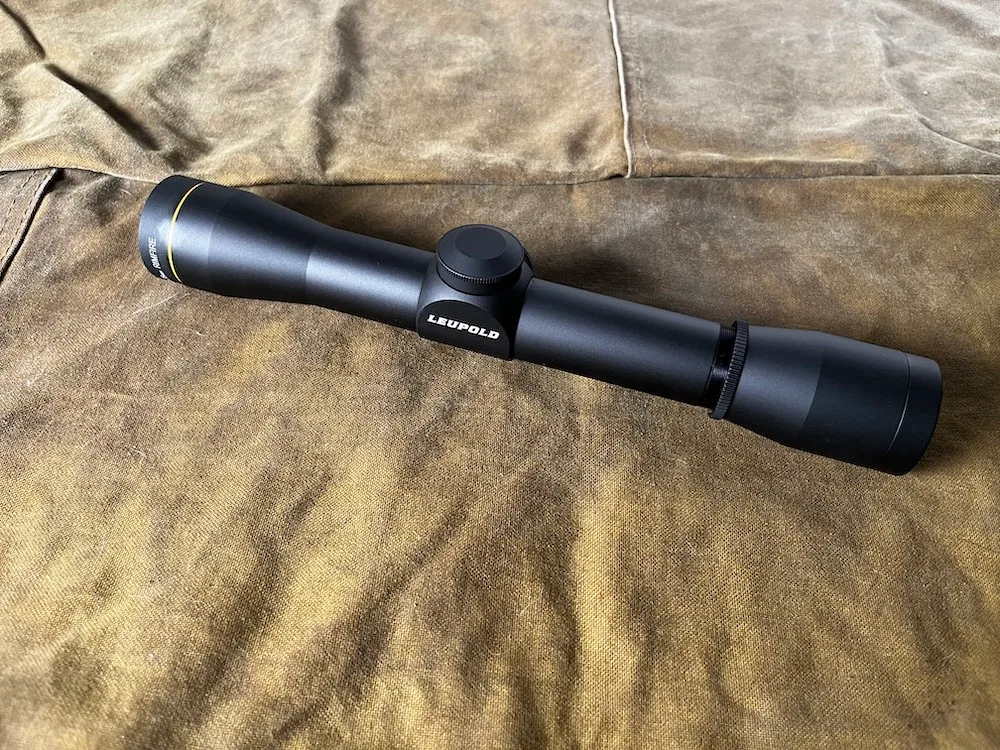
If I were setting up the perfect squirrel rifle, I’d top it off with a Leupold FX-I Rimfire. Most rimfire-specific scopes are cheaper, but with that drop in cost comes a drop in performance. If you spend just a bit more money, you can have a quality optic that will likely outlast your rifle. The FX-I is super bright, extremely lightweight, and gives you everything you need for rimfire hunting. It also gives you nothing more, which is nice for a no-nonsense squirrel hunting setup.

The reticle on the FX-I is super fine, but it has a duplex design to help focus your eye. Parallax is set to 60 yards, which is around the distance where most squirrels take their last bite of an acorn. The light transmission and optical clarity of the FX-I is what really makes it nice for shooting bushy tails. Often, you’re in dark woods trying to find a small target, and good glass helps.
Best for Plinking: Primary Arms Classic Series 6x32mm
Specs
Magnification: 6X
Reticle Type: Second Focal Plane
Objective Lens Diameter: 32mm
Tube Diameter: 1 inch
Adjustments: MOA
Weight: 11.7 ounces
Pros
Lightweight
Easy to find holdovers
Cons
Limited to 22LR

The Classic Series 6x32 is made for plinking with a 22LR. The scope’s ACSS 22LR reticle is designed for the cartridge with holdovers for wind and elevation. You can also use it for range estimation on targets of known sizes, like clay pigeons or soda cans.
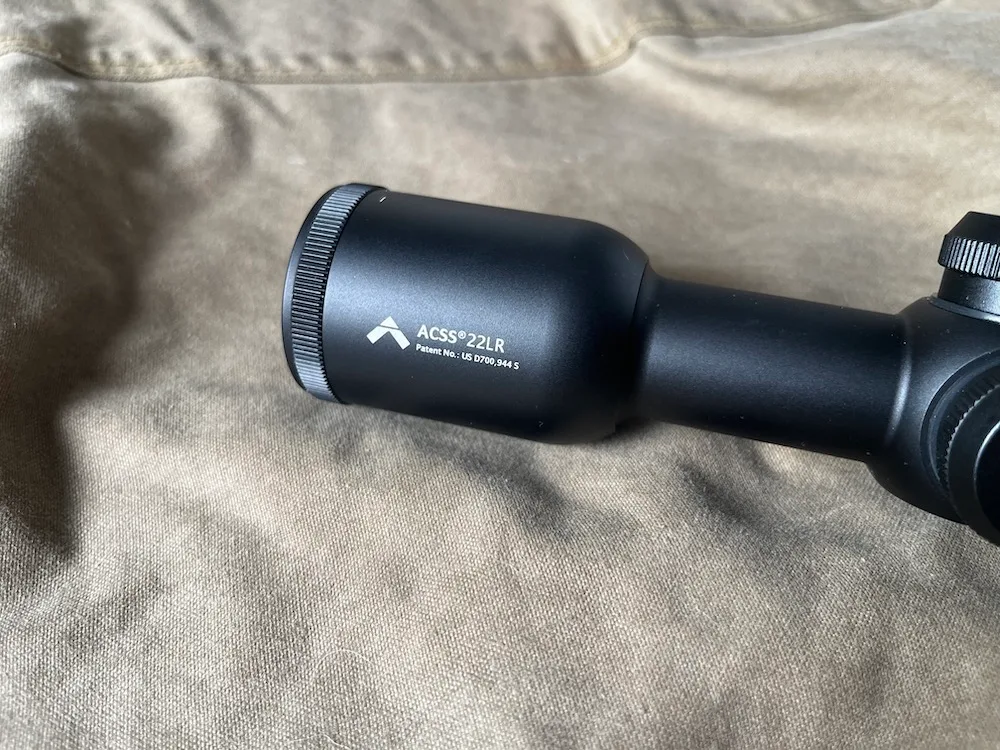
The scope is fixed at 6X, which will take you to the edge of most 22 plinking distances. During my test, I mounted the optic on a 22LR bolt-action, but I could see this optic right at home on a Ruger 10/22 or AR-style rimfire. I found its reticle easy to pick up when shooting fast and a lot of fun when shooting reactive targets like steel.
Best Scout Scope: Burris Scout 2.75x20mm
Specs
Magnification: 2.75X
Reticle Type: Second Focal Plane
Objective Lens Diameter: 20mm
Tube Diameter: 1 inch
Adjustments: MOA
Weight: 7 ounces
Pros
Lightweight
Solid reticle for quick shots
Cons
No complaints—this is about as good as a scout scope gets
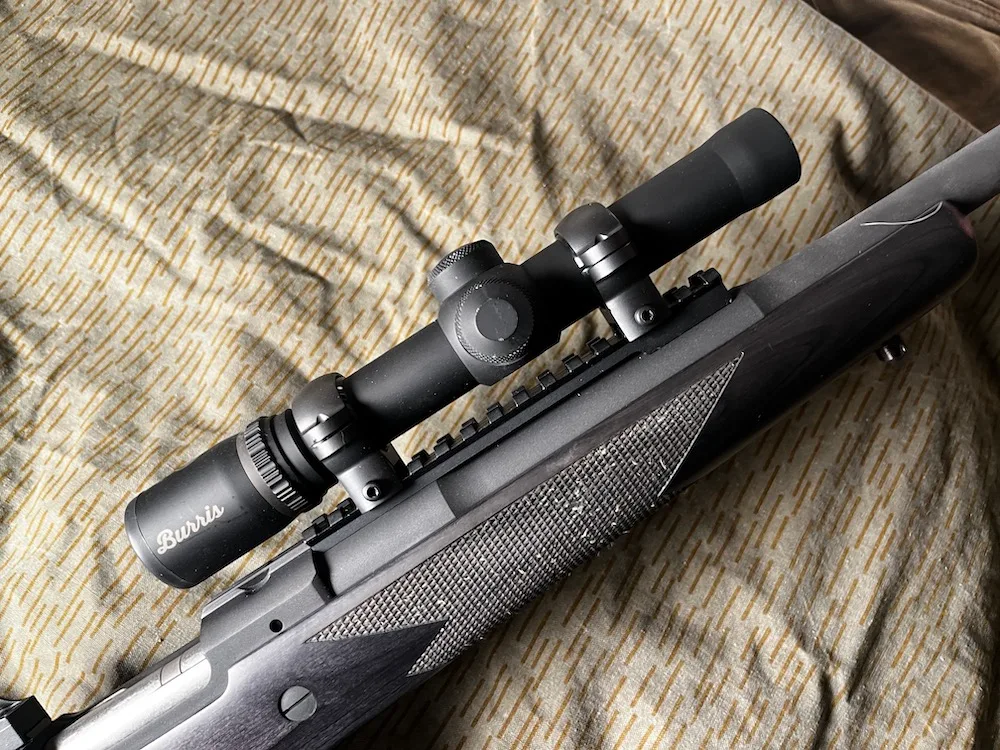
If you’re looking for an optic to run on your scout rifle, the long-eye-relief Burris Scout is just about perfect. I’ve tried other scout scopes and few have the edge-to-edge optical clarity of the Burris. With 2.75X of magnification, it’s ideal for hitting targets both close and far.
Scout scopes can be tricky as they add weight to the front of a rifle. But at just 7 ounces, the Burris hardly affects this. I’d take it over any variable-power scout scope and run it on anything from a lever-action to a classic bolt-action scout similar to Jeff Cooper’s original design. For the test, I put the scope on a Ruger Gunsite Scout.
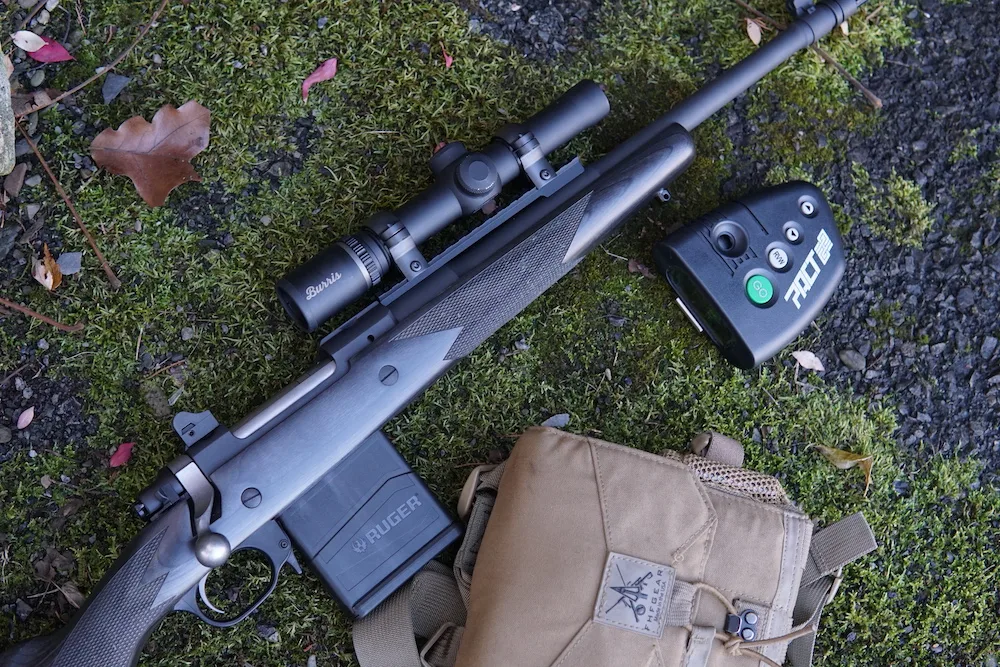
On near and far targets out to around 200 yards, I didn’t have a problem making hits. Snap shooting at under 50 yards was also easy. Pick one up for your scout rifle and you won’t be disappointed.
How We Tested Fixed-Power Scopes
The best place to test scopes is on the range, so that’s what I did. I took each of the scopes, mounted them to a few test rifles, and dialed them in. In doing so, I tested the scopes’ ability to establish and maintain zero, and continued to fire several shots from the bench.
After that, I took shots with the scopes from different field positions and fired timed shots on a deer-sized target at 25 yards. When hunting season came around, I took several of the scopes into the field to hunt everything from whitetail deer to small game.
What To Look For in a Fixed-Power Scope
Use
When you’re selecting the right fixed-power scope for you, you really need to think about how you plan to use your rifle. Because the magnification is fixed, you’ll want to consider where you’re hunting and what you’re hunting.
Magnification
Two good general-purpose magnifications are 4X and 6X. I’d consider running a 4X in the woods for game like deer, or atop a rimfire for small game like squirrels. I’d feel comfortable with a 4X out to around 200 yards. (One thing to note is that if you buy a rimfire-specific scope, the parallax will likely be set at around 50 yards.) I’d select a 6X scope for more open country and some woods. This is a highly versatile magnification whether you’re running a fixed power or not. It will let you take game anywhere from 25 to 300 yards if you practice and get used to shooting with it.
Reticle
The reticle is also an important consideration when selecting a fixed-power scope. I prefer a simple crosshair or duplex reticle because I generally limit myself on distance when shooting a fixed power and don’t need to hold over for shots.
Final Thoughts
It might be intimidating at first to go afield with just a fixed-power scope. But once you get used to one, you might not want to go back. They aren’t the perfect solution to all of your hunting or shooting needs, but they do give you a level of straightforward simplicity that only iron sights can rival. The best thing is, you don’t have to fork over a ton of cash to try a fixed power out. There are several options out there that cost well under $200. Give one a try at the range and you’ll see what I’m talking about.
Why Trust Us
For more than 125 years, Field & Stream has been providing readers with honest and authentic coverage of outdoor gear. Our writers and editors eat, sleep, and breathe the outdoors, and that passion comes through in our product reviews. You can count on F&S to keep you up to date on the best new gear. And when we write about a product—whether it’s a bass lure or a backpack—we cover the good and the bad, so you know exactly what to expect before you decide to make a purchase.

